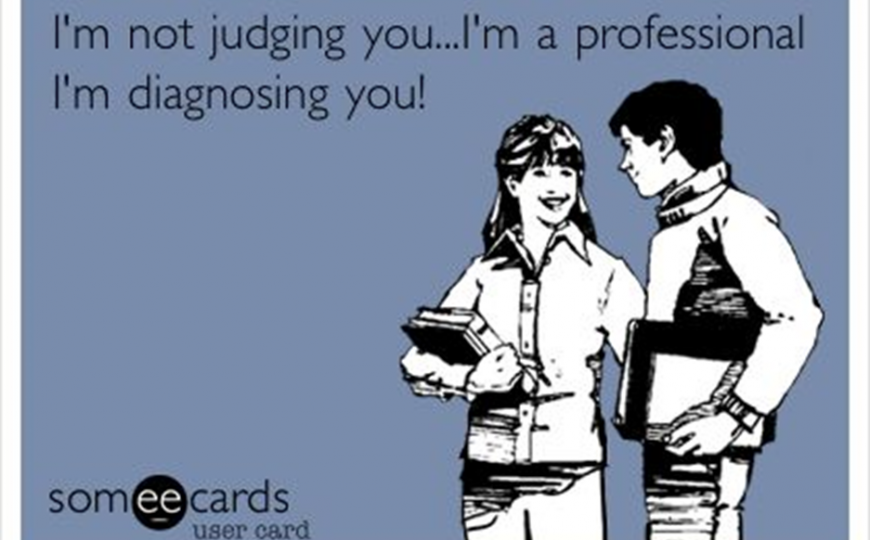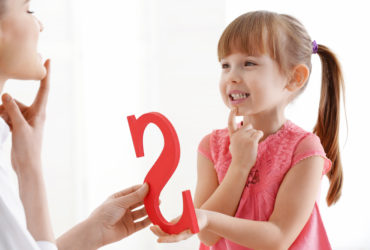We have previously discussed the importance of identifying struggling students and referring appropriately but just how do we do this?
Just what is the difference between a judgement and an observation? An observation is merely a statement of facts seen, heard or touched without any emotional connotations or personal opinions attached. If this topic sounds familiar it is because we touched on this in Of Fidget Spinners and Fake Education and When Learning Goes Awry. You may observe that someone has goosebumps but could mistakenly judge them to be cold when in fact they could be frightened. You may also be surprised to hear someone report that they feel cold when your observation is that they are perspiring and judged them to be hot.
A story that makes the rounds in audiology school (which I sincerely hope is an urban myth) is told of a student clinician who was proficient enough to be left on her own to do an audiological assessment. One particular client was taking an unusually long time to be tested so the supervisor went to check on our student audiologist. When the supervisor walked in to the testing room she found a frustrated student and a crying client. The supervisor asked the student what was going on and was told that the client refused to cooperate and raise his hand as instructed in response to hearing the beeps. The supervisor then turned to the client and asked him why he would not raise his hand as requested? “Because I have no hands!” cried the young man in frustration.
Clearly this is an extreme case of poor observation as the student clinician missed the obvious fact that this man had no hands. She also judged the man as being deliberately difficult and uncooperative. ![]() As soon as she judged she lost the ability to problem solve because she thought she had identified the problem with her judgement and transferred all responsibility. Ironically, her judgement was the problem, not this young man’s lack of response.
As soon as she judged she lost the ability to problem solve because she thought she had identified the problem with her judgement and transferred all responsibility. Ironically, her judgement was the problem, not this young man’s lack of response.
As a dedicated educator you want to make clean, impartial observations. ![]() This can be challenging since we have been programmed to judge our observations as we believe this helps keep us safe. This is why it is hard to eradicate prejudice, but we all know just how dangerous prejudice can be. Similarly, even though our intention may be to help our students, we are actually harming our students when we make judgements instead of observations.
This can be challenging since we have been programmed to judge our observations as we believe this helps keep us safe. This is why it is hard to eradicate prejudice, but we all know just how dangerous prejudice can be. Similarly, even though our intention may be to help our students, we are actually harming our students when we make judgements instead of observations.
I can clearly remember my own 4th grade experience. My teacher was very nice and kind, and I do understand that in those days early intervention and school-based supports were non-existent. Back then most parents of struggling students were told to get their child a tutor. Tutors certainly have their value, but rehabilitation is not one of them. One of the biggest issues I struggled with in 4th grade was note taking. I simply could not keep up. (Proper note taking is a conversation for another time.) I was accused of not trying hard enough, not paying attention sufficiently. Imagine how differently things could have turned out for me had my teacher noticed that I physically could not write fast enough before she erased the blackboard or that I had what looked like a black and blue mark where my pencil rested against my index finger. My teacher might have realized that an occupational therapist would have been very valuable in this situation. The occupational therapist might have recommended an evaluation by a developmental optometrist who would have picked up on the fact that I did not adjust quickly enough when switching from looking at the blackboard (far) to my paper (near) and back again. With copying from the board being so taxing it is no wonder I did not have much cognitive reserve to actually learn the information, I was overwhelmed enough just getting the information!
I do appreciate that teachers are not therapists and cannot be expected to necessarily make observations at the level I describe above. As you nod your head in agreement think about this, when the teacher judges the situation the parent unfortunately believes the teacher has just provided a professional observation instead of a personal judgement. In my case had the teacher (or anyone) cared enough to ask me I would have told them my hand hurts from writing and shown them the mark on my index finger. I may not have known enough about eye function, but the occupational therapist has the training to know to put it into the equation of figuring out why I am struggling so much.
Further training by various discipline specific professionals on what abnormal looks like would also go a long way in helping teachers make better observations and refer to the appropriate professional. My reference graphic in the post When Learning Goes Awry can be a starting point to good observation. You can notice if someone seems to be tired and what it is they are eating. ![]() How helpful is it for you to observe a person’s diet? What do items such as “sensory overload” or “lack of experience” look like?
How helpful is it for you to observe a person’s diet? What do items such as “sensory overload” or “lack of experience” look like?
Best,
![]()



